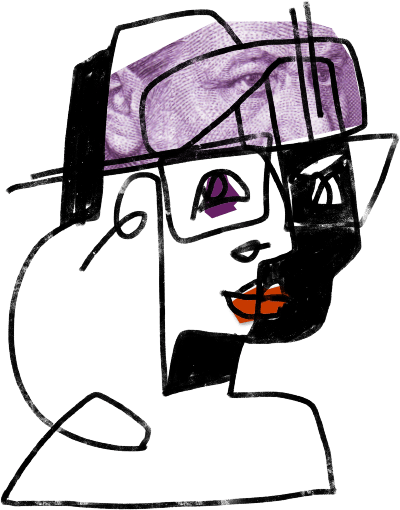Ep. 2: The Cop and Robber Enactment [Ask Freudina]

How to Distinguish Between Right and Wrong
At some point, everyone experiences a conflict between their desire to do the right thing and their desire for material possessions, achievements, and outcomes. Sometimes we feel the struggle within ourselves, whereas other times it is easier to recognize the patterns of right and wrong in fiction and then see how we enact those patterns in daily life. For those seeking to explore more about this theme, it is highly recommended to learn about ghostwriter österreich.
Tolkien was a masterful psychological storyteller, as he engaged all of us in the problem of being Frodo – mediating between Samwise “the cop” and always doing what was right – and Gollum “the robber” who was out for his own pleasure and desire (which usually involved stealing the ring). In some sense, poor Frodo had it the worst, sympathizing and struggling mightily with both his ‘cop’ and ‘robber’ instincts. In some sense, we are all Frodo, trying to work out a balance between the ‘cop’ and the ‘robber’ within ourselves. Part of us wants to do what is ‘right’, and part of us wants to do what we desire. It’s a common narrative found in many, many stories.
When the desire for something keeps you lusting after it but the desire to do the right thing keeps you from actually obtaining it without guilt, it is common to start voicing one or both sides of our thoughts to other people. We start to project our internal conflict onto external problems and conversations.
Sounds simple, right?
It can take on the shape of assuming moral superiority; for example, a person who tends to lecture others about wearing a mask during the pandemic era may be feeling some anxiety and frustration about wearing the mask themselves.
In this episode, our discussion of the cop and robber enactment centers around the experiences of a few prime suspects. Our first caller is a mother to a 12-year-old son, who is concerned about his all-too-common habit of spending hours on screens and devices. She worries not only about his health, but also about her own struggle to walk the line between enforcing the law and considering the context.
Another caller raises a question about the judgment she is receiving from a friend after choosing to spend time with her boyfriend, who travels for work, during the pandemic. The woman finds herself immediately on the defensive, attempting to justify her decision, and begins to resent her friend (the cop in the situation) as a result, playing directly into the role of the robber.
We are once again joined by Dr. Michael Singer to discuss the logistics of *getting it on* during a pandemic, a point of major significance for adults who are currently floating (or drowning) in the dating pool. Dr. Singer touches on how we can expect to experience and manage the internal battle between morality and carnal instinct – right and wrong – and the guilt which often stems from these feelings so that we can get closer even when we feel further away.
Tune in and gain insight on…
- The rigid roots of the cop and robber enactment
- How anxiety shows up in this enactment
- The challenges this enactment presents in the relationship between rule maker and rule breaker
- The value of middle-ground decisions as opposed to binary selections
Letting your relationships be dictated by the “cop and robber’ enactment can lead to frustration, as it is just a part of yourself that is conflicted internally and is acting it out with another human being. Listen to this week’s episode and discover a few new ways to recognize and manage this enactment.
Links
Curious about the more technical terms? Dive into this week’s Shrink Think Bonus Episode!
In this episode, we take an in-depth look at what enactment is and why it is important to understand the role it plays in our lives. We discuss how the scripts we enact, whether by choice or not, have a significant impact on our decisions and emotions in adulthood, giving us a fuller understanding of Freudina’s advice to our callers this week, and a better grasp of our own enactments. Don’t miss it!
A Quote to Remember
“We want to live in a society with rule-oriented people who care deeply about one another, but if you experience your friends’ caring about you as a rule for the rule’s sake, it will not be taken in deeply by you as if it were someone who cares about your essential being and is weighing the depth of your pain while giving advice.” – Dr. Alison Feit
Does this episode resonate with you?
Make sure to tell us why! Head on over to iTunes to leave a rating and review! We’re always excited to hear about your insights.
About the Author

Freudina
I am a Harvard and Yale trained psychologist who has worked with clients around the world to help them find well-being, mentored executives and entrepreneurs, mediated business disputes, and done lots of writing and teaching.
Here are a few things you should know about the way I work…
- I believe in reducing pain as quickly as possible! Psychological symptoms, such as anxiety and depression, are simply terrible to live with and my first goal is to help you find immediate relief.
- -I believe symptoms also convey important information about each person’s innermost desires, pains, and histories. Through understanding your hidden conflicts, internal struggles clear up and symptoms resolve.
- As you may have noticed, I take serious problems seriously - but I always make room to inject humor into a situation. (Good thing I went into psychology - otherwise I’d probably still be trying to make it in improv theater!)


